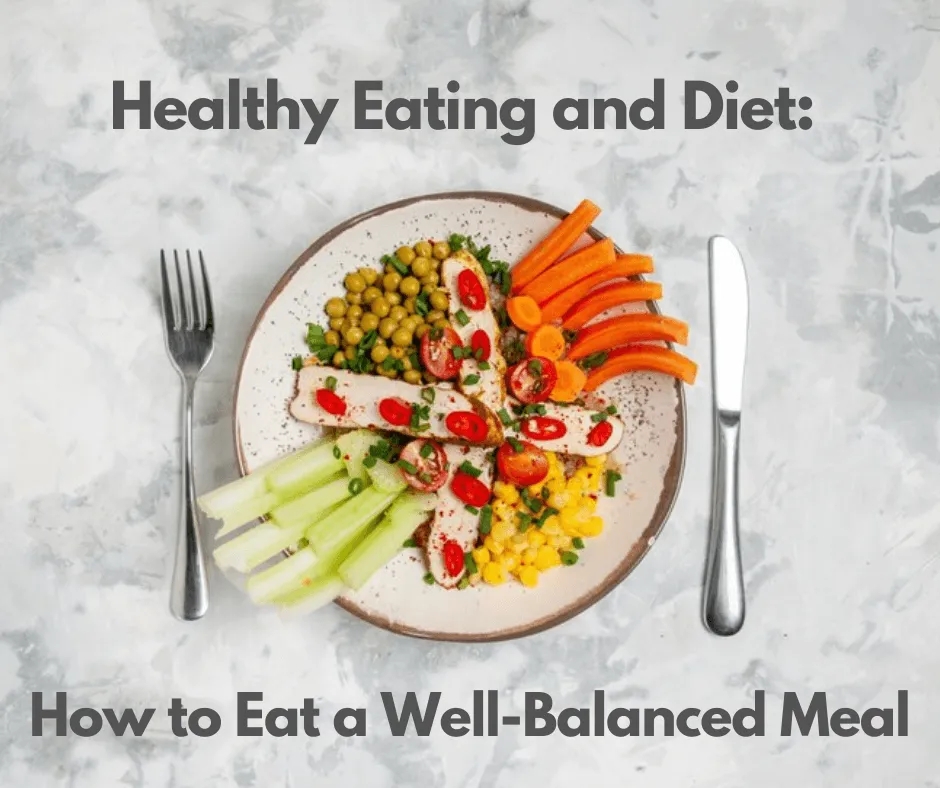Healthy Eating and Diet: How to Eat a Well-Balanced Meal

A good diet is crucial for maintaining good health. However, cooking healthy meals might seem like a chore with family, business, and other responsibilities. This is where homemade freezer meals come in and are really useful!
Starting Your Healthy Eating Journey
Set reasonable goals to start small. For example, you could replace that sweet drink with water or add some extra vegetables to the dishes. Gradually add challenging objectives, like cooking more at home or cutting back on processed foods.
Changing the recipes might also help to keep things interesting. Try other cuisines, for example, Mediterranean, Asian, or even a variation of classic favorites. Maintaining your new behaviors depends on finding nutritious foods you genuinely enjoy. And let's pay attention to hydration! Just as important as eating right is drinking enough water throughout the day. Try getting at least eight glasses daily; you'll feel more focused and invigorated.
Crafting a Well-Balanced Meal
What makes up a balanced meal, then? A well-balanced dish calls for carbohydrates, protein, and good fats.
Carbs
Your energy comes from carbs. When eating lots of fruits and veggies, consider whole grains, including brown rice, quinoa, and whole wheat pasta. These provide fiber in addition to calories, keeping your digestive system in line.
Protein
Lean meats, fish, poultry, dairy, and plant-based sources such as beans, lentils, and tofu all provide protein, vital for tissue repair in the body. Investigating protein-rich foods like chickpeas, lentils, and quinoa can bring diversity to your meals, whether you're vegetarian or vegan.
Healthy Fats
Additionally, healthy fats are very important. They support hormone activity and brain function. Eat avocados, almonds, seeds, and olive oil, among other things. A little olive oil drizzled over your salad or a handful of nuts for a snack will make all the difference.
Fibre
Toss a vivid combination of fruits and vegetables to grab a range of vitamins and minerals. Try for a rainbow on your dish. For instance, dark leafy greens are heavy in iron and calcium, while vivid orange fruits and vegetables, such as carrots and oranges, are bursting with vitamin C and beta-carotene.
A well-balanced meal also depends on reasonable portion control. You would be shocked, but occasionally, overindulging in even healthful foods can cause weight gain. Measuring your servings or using smaller dishes can help control such amounts. And keep in mind that drinking enough water is absolutely vital. So, sip plenty of water all day.
Eating Well without Going Broke
Good eating fits any budget! Here are some helpful guidelines:
Buy in Bulk
Stocking basics like grains, beans, and nuts will help you save money over time. Purchasing in bulk usually results in a lower price per unit, which, over time, adds up to notable savings. Less packing is also fantastic for the environment! Ensure you have enough storage, and the goods will go well before you need them.
Seasonal Shopping
Produce in season is usually fresher and less expensive. For instance, summer tomatoes or fall pumpkins are frequently more reasonably priced and delicious. To find out what's in season close by, visit neighborhood farmers' markets or perform a fast web search. It's a great way to appreciate bright, fresh vegetables and help nearby farmers.
Choose Frozen Food Options
Choose frozen options or cook at home to help you save money and manage what goes into your diet. Weekend meal planning might help throughout hectic weekdays. We recommend freezing leftovers for the following meals and making larger quantities. And if cooking seems daunting some days, search for brands with frozen meals created with organic, fresh foods.
Utilize Discounts & Coupons
Never undervalue the power of discounts! Look for healthy food deals in neighborhood publications or grocery shop circles. Just be aware not to let poor choices influence you because they're on sale. Following your grocery list can help you stay motivated.
Embracing Homemade Frozen Meals
Made-from-scratch frozen food brands change everything! They offer quick, ready-to-eat dinners appropriate for your hectic schedule. You're good to go; pop them in the oven or microwave. When selecting a brand, search for those with sensible ingredient composition. This allows you to eat healthy food without compromising taste.
For example, companies like Mai Frozen Foods emphasize excellent ingredients to guarantee you're getting a quick-to-make nutritional meal. Their meals usually feature lean proteins, whole grains, and lots of vegetables, which helps you quickly keep on target with your diet.
Quick and Easy Meal Ideas
Incorporating frozen meals into your routine is a breeze. You can enjoy them on their own or jazz them up with fresh ingredients. For example, toss some steamed veggies or a salad on the side for added nutrition. You might also consider using frozen meals as a base.
Imagine a frozen veggie stir-fry that you can enhance with fresh garlic and ginger, or adding a fried egg on top of a frozen grain bowl for an extra protein boost. The possibilities are endless!
Conclusion
Eating well is mostly about choosing wisely to fit your way of life. Starting with modest, reasonable goals and adding convenient choices like frozen dinners will help you follow a balanced diet. Recall that this is a road; be kind to yourself and honor those small victories as you travel!